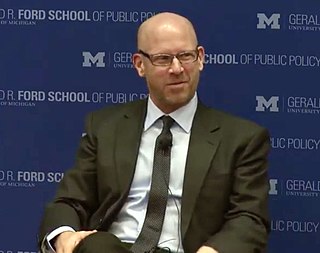A Quote by bell hooks
Whether we're talking about race or gender or class, popular culture is where the pedagogy is, it's where the learning is.
Related Quotes
I think that it is too common for white feminists to say, 'We want some diversity. Come join our movement about gender, but we want you to check the class and race at the door.' And you can't undo that braid of race, class, and gender: all three intersect with each other, so it's important for more education to be done about that.
It seems to me that we make a terrible mistake in talking about Trump as some kind of essence of evil. Trump is symptomatic of something much deeper in the culture, whether we're talking about the militarization of everyday life, whether we're talking about the criminalization of social problems, or whether we're talking about the way in which money has absolutely corrupted politics. This is a country that is sliding into authoritarianism.
Intersectionality has made an important contribution to social and political analysis, asking all of us to think about what assumptions of race and class we make when we speak about "women" or what assumptions of gender and race we make when we speak about "class." It allows us to unpack those categories and see the various kinds of social formations and power relations that constitute those categories.
It's the culture, not the blood. If you can go anywhere in the world and adopt these babies and put them into households that were already assimilated in America, those babies will grow up as American as any other baby with as much patriotism and love of country as any other baby. It's not about race. It's never been about race. In fact the struggles across this planet, we describe them as race, they're not race. They're culture based. It's a clash of culture, not the race. Sometimes that race is used as an identifier.
With the rise of new technologies, media, and other cultural apparatuses as powerful forms of public pedagogy, students need to understand and address how these pedagogical cultural apparatuses work to diffuse learning from any vestige of critical thought. This is a form of public pedagogy that needs to be addressed both for how it deforms and for how it can create important new spaces for emancipatory forms of pedagogy.
To maintain their power, dominant groups create and maintain a popular system of 'commonsense' ideas that support their right to rule. In the United States, hegemonic ideologies concerning race, class, gender, sexuality, and nation are often so pervasive that it is difficult to conceptualize alternatives to them, let alone ways of resisting the social practices that they justify.
Popular culture as a whole is popular, but in today's fragmented market it's a jostle of competing unpopular popular cultures. As the critic Stanley Crouch likes to say, if you make a movie and 10 million people go see it, you'll gross $100 million - and 96 per cent of the population won't have to be involved. That alone should caution anyone about reading too much into individual examples of popular culture.


































